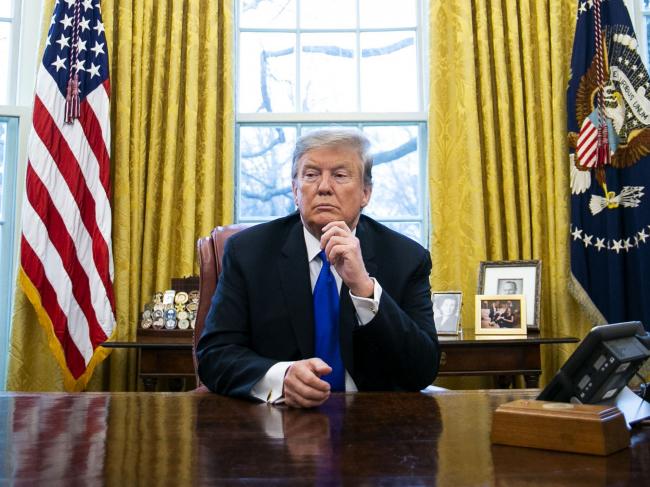(Bloomberg) -- The U.S. Department of Justice said the White House can use executive privilege to decline to release a Commerce Department report advising President Donald Trump on proposed tariffs on imports of automobiles and car parts.
Commerce handed the analysis to Trump’s office in February and the findings have been kept private since. Congress sought to accelerate its disclosure by requiring the Secretary of Commerce to publish it by Jan. 19.
“We conclude that the executive branch may rely on the constitutional doctrine of executive privilege to decline to release the report at the deadline,” Assistant Attorney General Steven Engel said in a letter dated Jan. 17 and posted Tuesday. “The report is a confidential presidential communication, the disclosure of which would risk impairing ongoing diplomatic efforts to address a national-security concern.”
The Department of Justice and Commerce didn’t immediately respond to a request for comment. The White House declined to comment.
The Commerce study focused on whether to impose tariffs on the auto imports under Section 232 of the Trade Expansion Act, which allows for duties without a vote by Congress if imports are deemed a national-security threat. It was the same law the Trump administration used to slap tariffs on steel and aluminum imports.
Those duties have been controversial and have drawn legal challenges in U.S. courts and at the World Trade Organization. Senate Finance Committee Chairman Chuck Grassley has been working on a bipartisan bill to modify the Section 232 law after many lawmakers complained about the White House’s use of the statute.
“By refusing to make public the statutorily-required report on automobile tariffs, the Department of Commerce is willfully violating federal law,” said Senator Pat Toomey. “This is unacceptable, and my staff and I are evaluating the potential for corrective action to compel the rightful release of this report.”
The Justice Department decision found that disclosure of the report would risk interfering with executive branch deliberations over what additional actions, if any, may be necessary to address the threat.
“Although Congress may have a legitimate interest in ultimately reviewing the report to understand the basis for the president’s exercise of his section 232 authority, that generalized interest does not overcome the constitutionally rooted confidentiality interests that justify withholding the report until the resolution of diplomatic negotiations and action by the president,” according to the letter.
